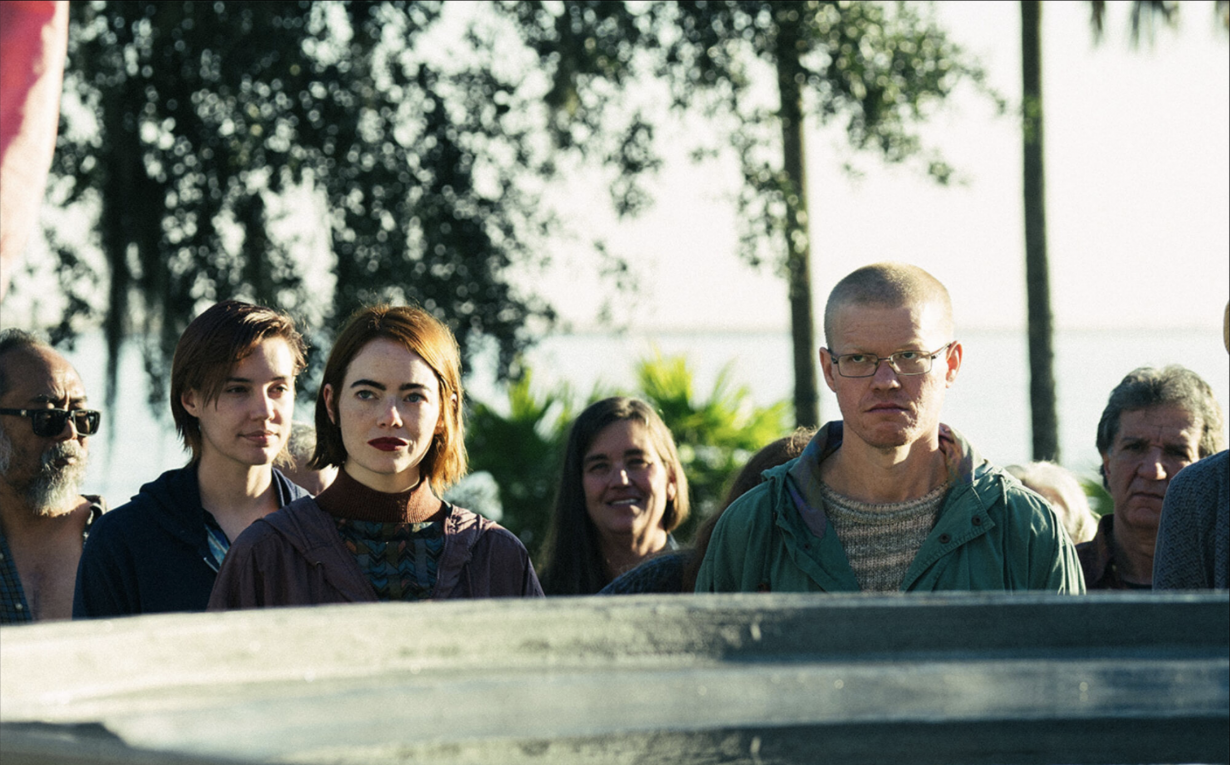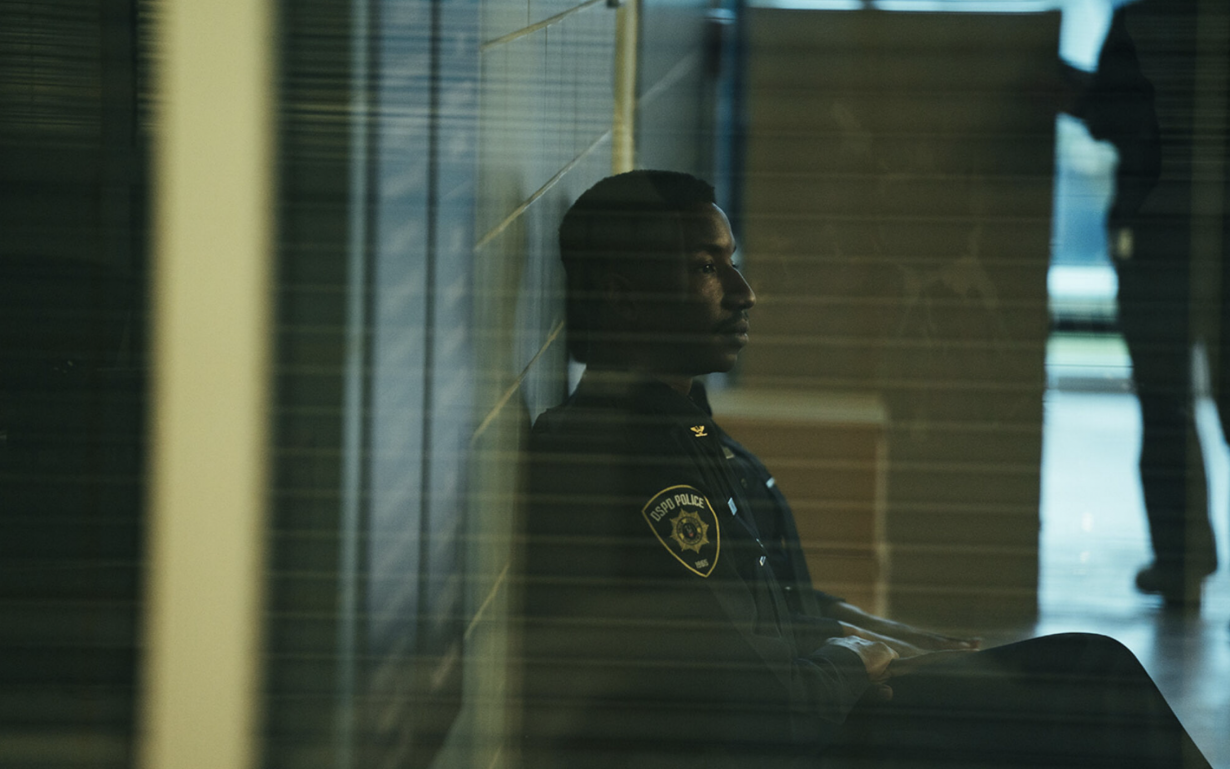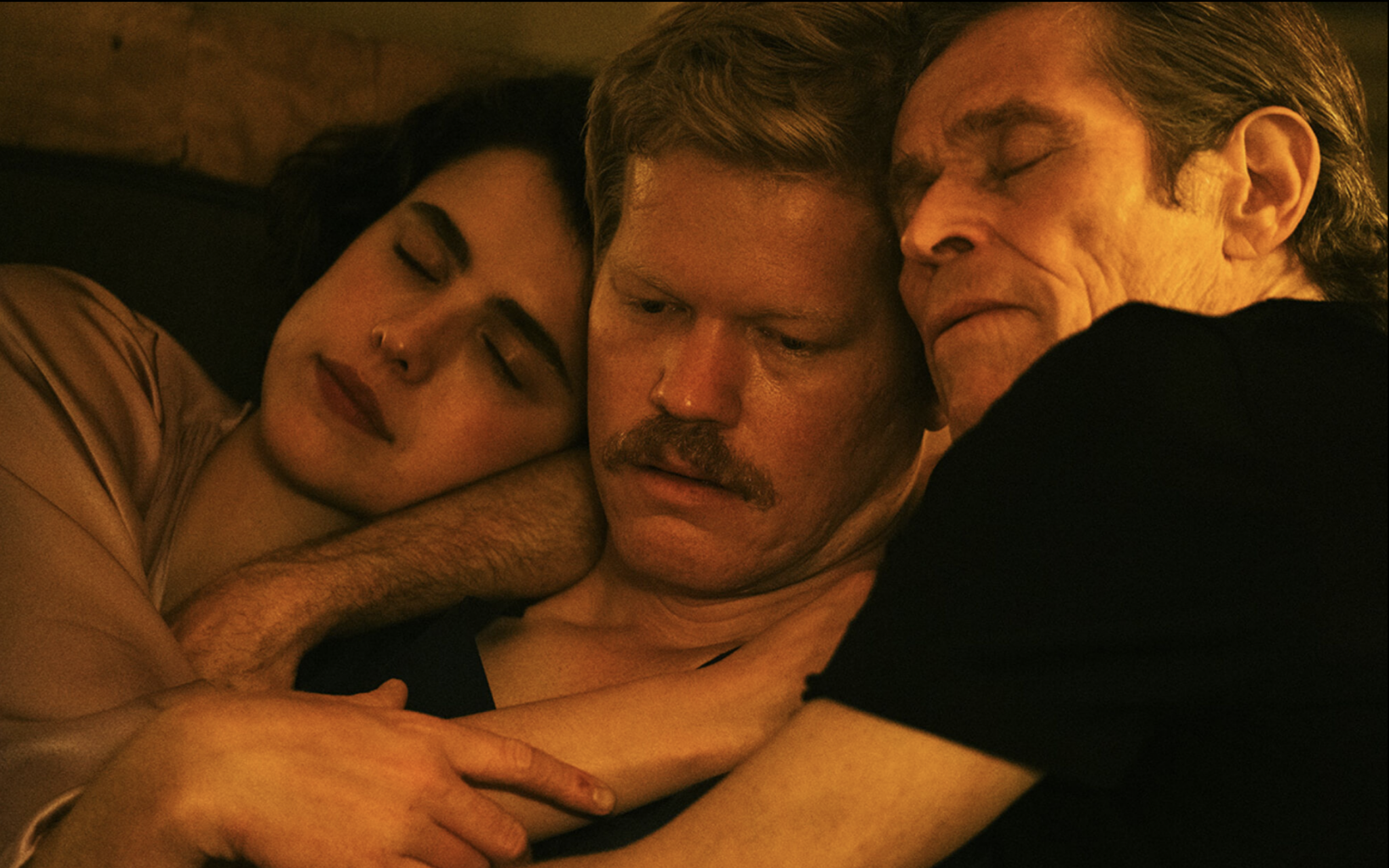If Poor Things was a little coy about its quasi-feminist, pseudo-paedophilic subject matter, Yorgos Lanthimos is now fully back in sicko mode
“You deserve better than getting fucked by an old man like Raymond,” a middle-aged male character (played by Jesse Plemons) tells his former boss’s much younger girlfriend (Margaret Qualley) in the first of the three shorts in Yorgos Lanthimos’s new anthology-film Kinds of Kindness. “On the other hand,” she replies, “getting fucked by an old man like Raymond is exactly what you deserve.” The two possible meanings of the word ‘fucked’ – getting screwed, but also getting thoroughly screwed over – are the animating forces behind Lanthimos’s movie. If Poor Things was a little coy about its quasi-feminist, pseudo-paedophilic subject matter, the Greek auteur is now fully back in sicko mode.
Critically, much has been made of his decision to open up his latest with a blast of the Eurythmics’s Sweet Dreams (Are Made of This) (1983), with its helpful observation that the world is made up of people who want to use you, who want to get used by you, and so on. The song certainly offers up a mission statement, and its glittering construction is a mirror for the film’s very nature: its stylishness, its gorgeous sleaze, nearly tricks you into missing the brutality of its message. Kinds of Kindness’s three fables use the same troupe of actors, and they share a mood, but the plots themselves are not technically related: a man works for a powerful individual who dictates every single aspect of his life; a cop suspects his wife, a marine biologist, of being a double after she returns from a boating accident that left her marooned on an island; a sex cult which treats sweat and tears as its sacraments is looking for a long-prophesied woman who can bring back the dead. What they share beyond mood is a conviction that all interpersonal relationships result from a carefully-maintained balance of dominance and compliance, and that all romantic-and-or-sexual relationships especially are to some degree uneven, false, self-sabotaging or transactional. Lanthimos suggests, in effect, that all of humanity is split into those who fuck and those who get fucked: sadists and masochists; tops and bottoms; masters and servants; bosses and employees; cult leaders and followers; husbands and wives or, if you prefer, wives and husbands. Who am I to disagree?

It feels pointless, or perhaps beside the point, to hash out further details of the three plots, especially because I think Kinds of Kindness probably works best sight unseen. It is possible to identify numerous recurring motifs or images: all of the stories end with a willing human sacrifice; all of them contain prominent references to feet, and to injured feet especially; doubling recurs, as does the idea of partner swapping; dogs, those classic symbols of submissive loyalty, play a crucial part in two of the three fables. Nonetheless, it is less as if we have been given keys to solve the mystery than as if we are supposed to feel, à la Emma Stone’s marine biologist, that we are lost at sea. At its least oblique, Kinds of Kindness made me think of the famous speech that Phoebe Waller-Bridge’s titular character in Fleabag (2016-19) delivers to her Hot Priest as the two of them sit down for confession: “I want someone to tell me what to wear in the morning… I want someone to tell me what to eat… I want someone to tell me what to believe in, who to vote for… and I know that’s why people want people like you in their lives, because you just tell them how to do it.” Here, the implication was that love fills the same hole as God, and it was supposed to be unclear whether wanting to be told what to do by your beloved – or by the Almighty – was noble, or a form of self-abasement. In the universe of Kinds of Kindness, false love and false gods have left room for a kind of general psychic devolution, a state of confused unreality in which nobody is quite who they claim to be. The film posits that we tend as a species to need guidance, and that the removal of that guidance can be fraught – not freeing but unmooring. Being forcefully reassured of who we really are, even if it is bad for us, hurts so good that it is hard to give it up.


The first of Kinds of Kindness’s vignettes, about a Godlike boss named Raymond (Willem Dafoe) whose employee Robert (Plemons) is cast out of middle-class bourgeois paradise for refusing to take a man’s life on command, is a perfect demonstration of this urge for enforced order. It is also the best and most fully realised story in the film. One of Raymond’s little quirks is an obsession with giving trashed sports memorabilia as gifts: a smashed racquet that once belonged to John McEnroe, or the bloodied helmet worn by Ayrton Senna in the wreck that claimed his life. Great athletes are often compared to gods, and their wildest feats often described in quasi-theistic language – talk of miracles and fate. The artefacts that Raymond favours are at once a warning about what might happen when one eschews the natural order of things, and a reminder of the violence and the terror of transcendence. Car crashes like Senna’s are a common thread in Kinds of Kindness, and the car crash, too, has a kinky sort of kinship with the pursuit of the sublime via its manifestation of the ultimate effects of superhuman speed and superhuman power. (See also: J.G. Ballard’s Crash, 1973, and Cronenberg’s 2006 movie adaptation.) Ultimately, at the end of that Fleabag monologue, our antiheroine admits that nothing she does “makes any difference” to the way her life plays out, and that she’s “scared”. Kinds of Kindness is not Lanthimos’s most evil film as far as its actual content is concerned, and yet there is something frightening about it. Perhaps it is the realisation that we are every bit as trapped and baffled as his characters, and that nothing any of us does makes a difference. Like God, a director has a vision and a plan, and it is our job to try to make sense of it. If we cannot, we are forced to accept that he moves in mysterious ways.

It is interesting that Kinds of Kindness has been given a release date so close to that of 2023’s Poor Things, a film whose tone and subject matter were divergent to the point of irritation. By my estimation, there was something perverse about taking such a savage allegory about a sexy woman with the brain of a baby, and then rendering it as a candy-coloured tale of feminist empowerment (and not perverse in a good way, i.e. the way one might typically expect from Yorgos Lanthimos). I felt that Poor Things skimmed too swiftly and too lightly over all the darker elements of such an imbalance in power; that it was not sour enough, not sharp enough, too easy to digest. Well, here is the chaser: a film so nihilistic that even though it is funny – and it is sometimes very funny – it haunts you like a nightmare. In Poor Things, Emma Stone’s Bella is merely lightly reprimanded after being rude and dismissive to a john in an eighteenth-century brothel; here, one of her characters is drugged and assaulted by her husband for no reason other than the fact she does not want to remain married to him. Which is more realistic? If I sound like a cynic or a pessimist, I am still not cynical or pessimistic enough to have made Kinds of Kindness. In recent interviews Stone has been joking about Yorgos Lanthimos being “miserable”, and about his issues with working in the American studio system: “It’s just general questions like, ‘I don’t get it. What is going on in America?’ […He’s] like, ‘This is a fucking disaster.’” Maybe she is not joking at all, and this is why Kinds of Kindness feels like such a freaky primal scream. It is a film that sees humanity itself as “a fucking disaster” – so bracingly angular and weird that it takes you moment to realise you are laughing.
Philippa Snow is a writer based in Norfolk. Her latest book is Trophy Lives: On the Celebrity as an Art Object (2024)
